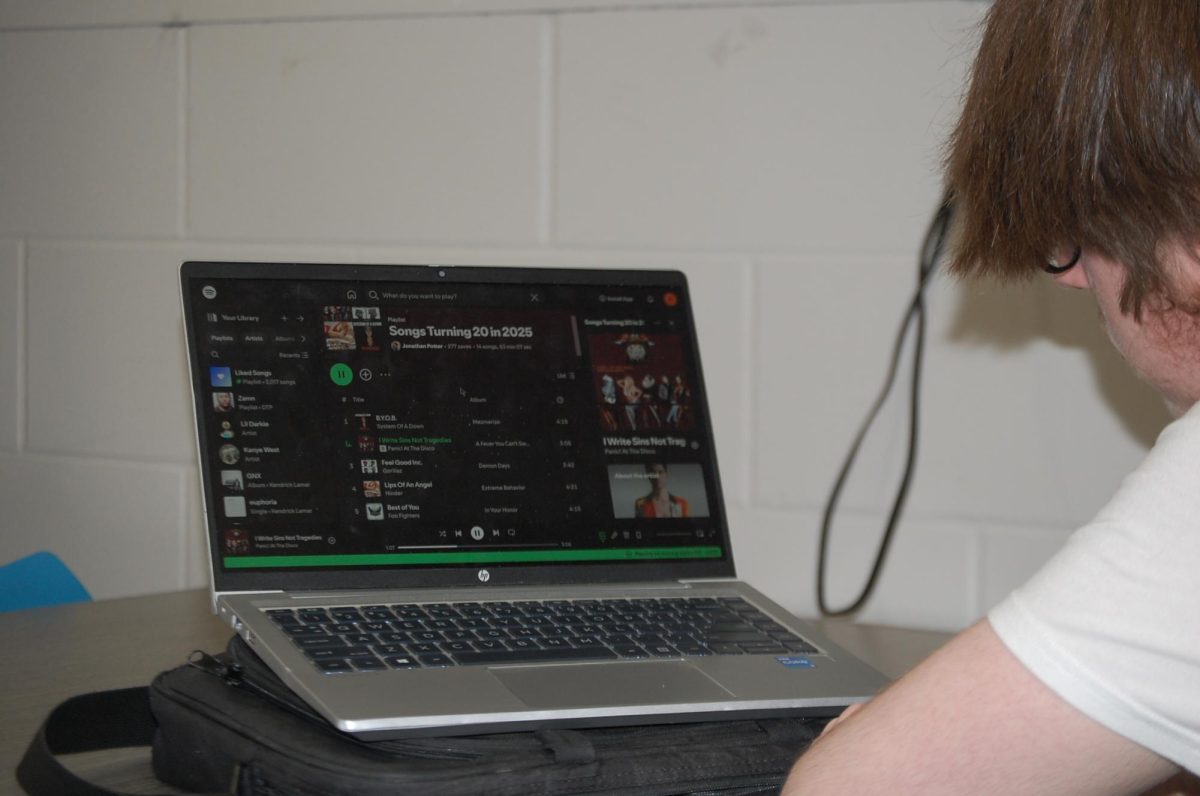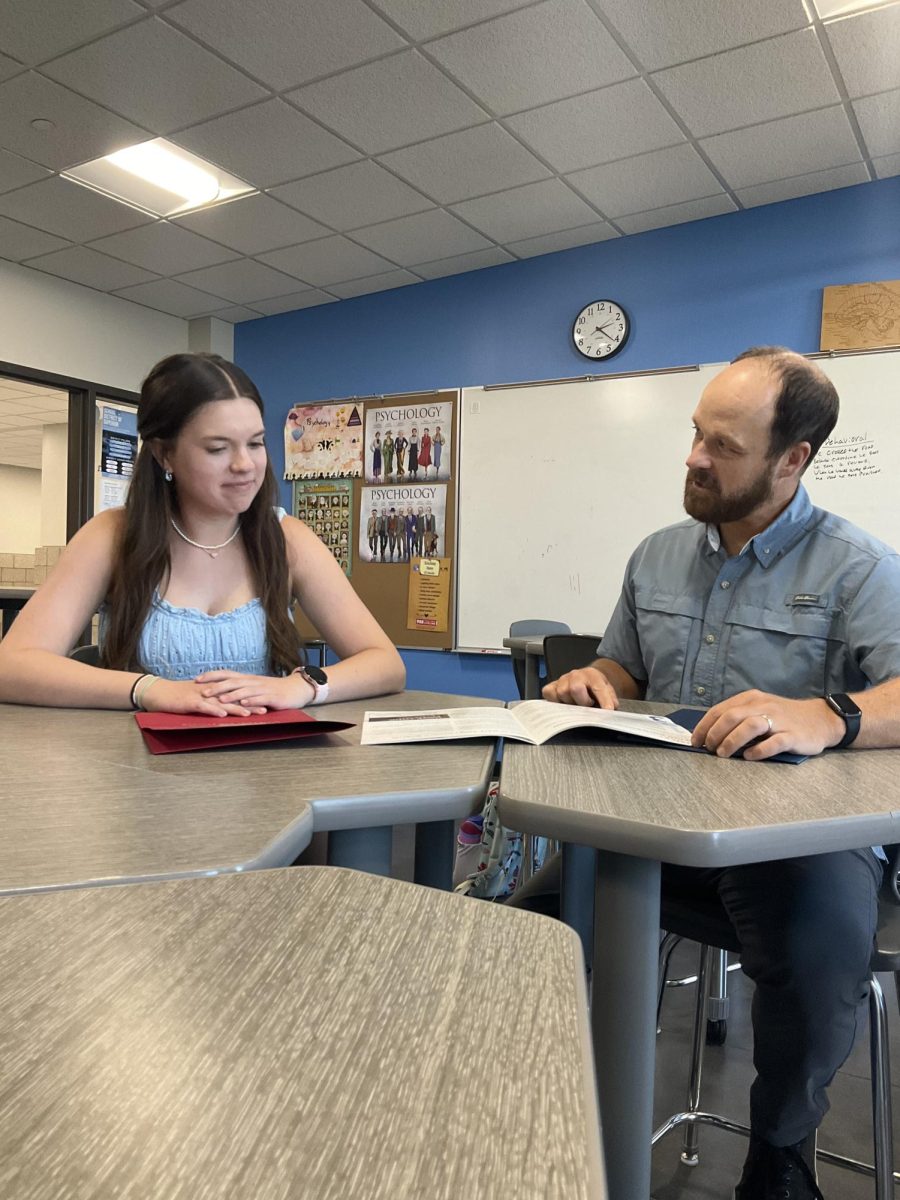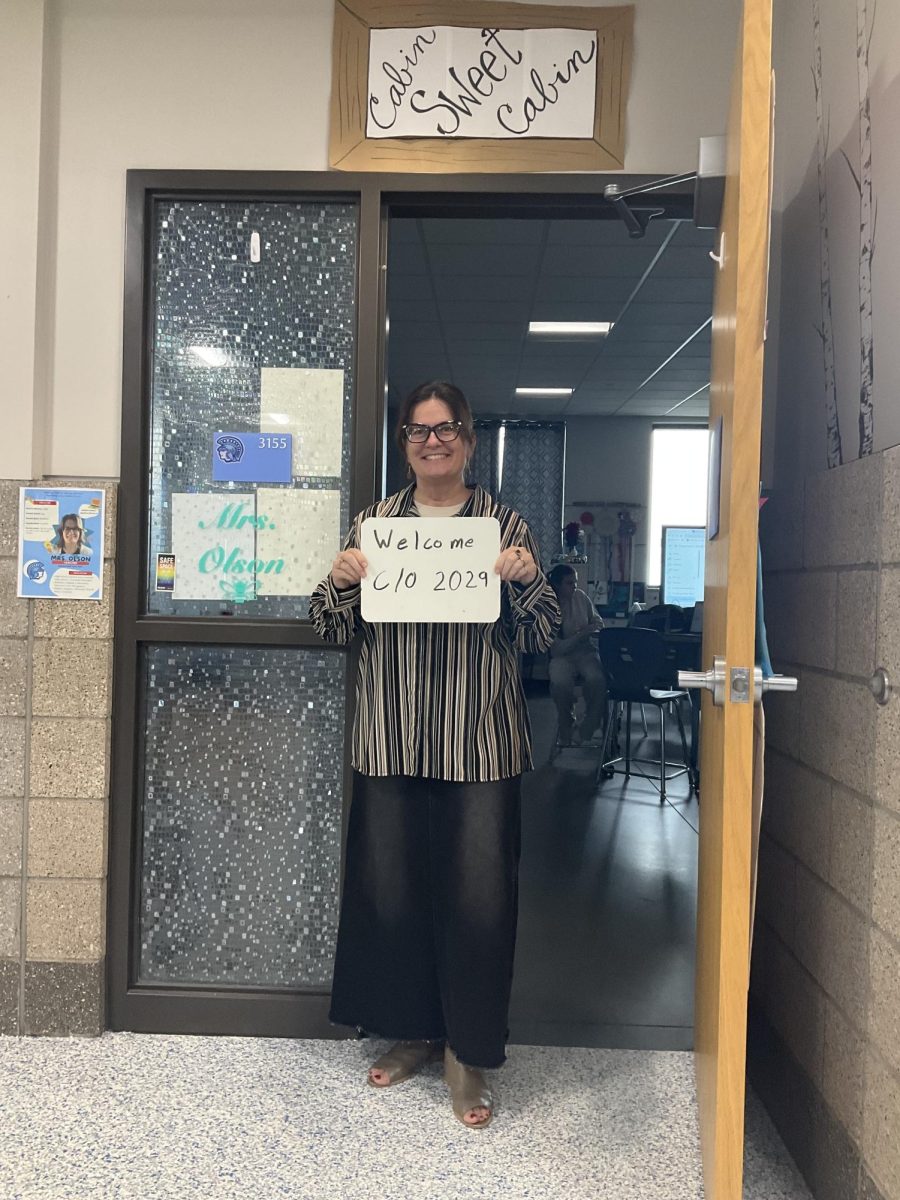Dear editors of the Spartan Spin,
Imagine for a moment, you enter class fidgeting with a pencil, trying to focus your mind
on the board. Anxious, you remember that the big game is tonight. Stakes, along with morals,
are high and you don’t want to disappoint. Bzzt! A phone notification goes off, grabbing your
attention and virtually begging to be checked. You play it off, it probably wasn’t important
anyways, it’s just insignificant news. Bzzt! Your heart begins to beat faster and thoughts begin
swirling throughout your head, “Is someone trying to get my attention?” or “Has the game been
canceled?” This is F.O.M.O. (fear of missing out) which many people experience on a day to day
basis. Already tempted, you take a peek at your notifications only for your efforts to be
rewarded with a referral; the bell hasn’t even rung yet.
Phone usage at SHS is a recurring problem at our school, either students disagree with the
“Away for the day” phone policy, or teachers notice that students are sneaking their phones in
class. Regardless of the phone policy’s success in reducing online school related drama;
increasing social interaction between peers; and improving attentiveness in class, students are
still discontent with the “Away For The Day” policy. Generally, most students would agree that
the phone policy is unfair and inefficient. They would agree that being told to keep their phone
away for the entire school day makes them subconsciously think about their phones and social
media even more, which can be represented as the fear of missing out. This issue is important
because phones are a common addiction among high schoolers. However, in school, phones are
an important part of communication between children and their caretakers for things regarding:
rides after school, work and school schedules, extracurriculars, as well as other necessities.
Nevertheless, there are still repeat offenders disregarding the policy entirely. Thus, our group
came to a consensus. We propose a trial period allowing phone access during passing time for
students before each class. This trial period would provide clear updates on the student body’s
status throughout the year, where the school will send it via email, provide statistics on referrals
in that month, and whether the school intends to terminate the trial or not. Naturally, there
should also be consistency present in the classrooms. That consistency would be for teachers to
have their own rules, regarding phones, clearly plastered on a poster in class. Not only would
this benefit students when switching classes, but it would allow students to better acclimate to
the policy. The passing time policy will allow students to have communication time before class
to parents and guardians when learning is not actively occurring, updates on how the student
body is doing, and give some much needed consistency in the classroom.
The proposal is for the students to be given a longer trial period that would be restricted
to passing time during the school year. Previously, students were given the lunch hour to have
their phones; but due to poor results in the latter hours of the day, it was quickly removed.
Ultimately, the most desired solution to this problem would be eliminating the “Away for the
day” policy as a whole. But as most could imagine, some students would take the opportunity
and abuse it. Therefore, for the implementation to work, we need the entire school to hold
responsibility. It has been proven through many studies nationwide that students do not obtain as
much information from their learning when they are able to have their phones during class. This
is a huge reason why phones throughout the School District of Superior have been taken away.
By allowing students to have their phone during only passing periods, important learning time is
not being taken from students. For better clarity on whether these new developments are
successful, a monthly notice should be sent out to all grades about the current status of the
student body and threaten the consequence of reverting back to the original policy if a certain
threshold is not met. This message would be to enact a sense of urgency in the students, and to
also get the current student body to self regulate. For the teachers, consistent enforcement and
reminders of their classroom rules through a clearly visible poster, as well as consistently
following these rules and enforcing them would help in regulating the learning-time, phone
issue. Another aspect that concerns deans, principles, and administrators is regarding the issue
of referrals and social interactions. It has been shown through data charts kept by SHS deans and
administrators that although the referral rates regarding phones have gone down, they have not
gone down by much, meaning that there has to be another way to effectively get rid of the
referral rate and successfully decrease it. Therefore, as each teacher will have their own
classroom rules on their poster, when a student is caught with their phone, instead of going
directly to a referral, they would have their phone confiscated until the end of class. Only if this
problem continues does the student receive a referral.
As the trial period would be longer, when the results can be determined as positive or
negative, the next stage of the plan would begin. If the results are leaning poorly, notices should
be sent out to all grades as a warning. The continual poor result would then terminate the trial
and the school would return to the previous “Away For The Day” policy. Whereas, with
sustained positive feedback, the phone privileges would continue. Notices should be sent out
every month to show the current direction the trial is heading towards regarding the policy,
which would encourage the students to be responsible with their usage.
Phones being allowed during passing time would be an exciting and useful opportunity
for most students, as it would be well utilized for students to negotiate rides after school, check
work schedules, check class schedules, etc. Additionally, it would take away from phone use in
class, because they’ve been given the chance to use it as needed during passing time. Overall,
this opportunity would be a great one, and would be an amazing opportunity for students to
moderate and control their phone usage to apply that maturity to their life in adulthood. High
school is the best time to teach responsibility and self discipline for the youth. Regardless of
what you do outside of high school, technology is cemented in everyday life. Therefore,
allowing this second chance for the students to prove and regulate themselves would only benefit
their well being.
Thank you for your time and consideration,
Ivy Cochrane, Halle Holmstrom, Rachel Reiswig, Ricardo Resendez, Cole Thralow













